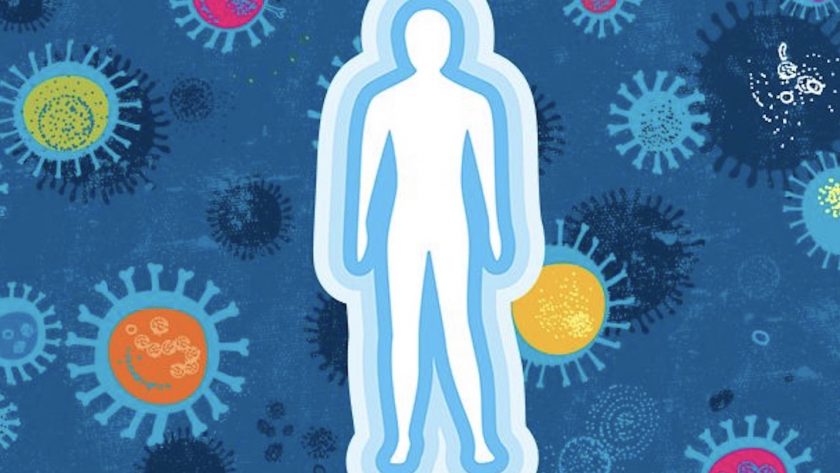Winter time is cold season: the number of classic colds increases with the beginning of autumn. If you work in a larger office or otherwise come into frequent contact with people, you probably won’t have to wait long for a stuffy nose, watery eyes, sore throat and cough. How do these infectious diseases develop and how can an infection be prevented?
Cold viruses are survivors
Cold viruses use an equally interesting and promising survival strategy: In contrast to dangerous, deadly viruses, the symptoms of a cold are usually comparatively harmless and bearable. This encourages those affected to ignore the signs of infection – and keep going to school, lecture hall or work. However, these viruses can easily be passed on, especially with large crowds. Even if experts advise curing the common cold with bed rest and avoiding the public, most of those affected do not stay at home. A study by the Federal Institute for Occupational Safety and Health showed that, despite having a cold, each employee works an average of around 11.5 days a year.

Cold weather promotes the spread of viruses
But how does such a cold arise? Contrary to popular belief, neither cold feet nor a cold head are directly responsible for the development of a cold. The cold, however, favors infection in several ways: On the one hand, our immune system is weakened by the cold, on the other hand, the viruses can survive particularly well in this environment. At the same time, we do less sport and spend more time in heated indoor spaces. Because people like to do without ventilation, the virus concentration increases in the rooms. In addition, the dry heating air ensures that the mucous membranes dry out. The viruses now have an easy job. By sneezing in the palm of your hand and greeting you with a handshake, the pathogens are passed on among the workforce, classmates or fellow students. The lack of sunlight not only tends to make us tired and suffer from so-called “winter blues”, the body also produces less vitamin D – which further weakens the immune system.
Make sure you have sufficient vitamin intake
In order to reduce the risk of infection, heating air that is too dry indoors should therefore be avoided. A slightly reduced temperature not only prevents the room air from drying out, but also prevents a cold shock when we venture outside again. Nutrition also offers great potential: a generous supply of vitamin C can reduce the risk of infection. Zinc should also be ingested with food – 15 mg is the recommended daily dose for an adult. Zinc has a positive effect on immunological processes and can therefore also strengthen the immune system. The trace element is found mainly in oysters and fish as well as dairy products. Zinc is also contained in most types of grain, which is particularly important for vegans and vegetarians. Fruit and vegetables should not be missing on the daily menu, in the cold season apples and some types of cabbage are available freshly harvested. Vegetables should be prepared as gently as possible so that the vitamins are retained.
60 percent of Germans suffer from a vitamin D deficiency
If the absorption of vitamins and minerals cannot be guaranteed through the food, an additional supply through dietary supplements makes sense. The latter applies in particular to vitamin D: Experts assume that around 60 percent of German citizens have a vitamin D deficiency. In northern Germany this figure is even 80 percent of the population. This phenomenon is by no means self-caused, because depending on the skin type, around 25 minutes of sun exposure are necessary for a sufficient production of vitamin D – which is hardly possible on most autumn and winter days. In addition, it is hardly possible to store this vitamin. The body only ever produces enough vitamin D to meet current requirements. Especially in winter, it can make sense to supplement with vitamin D. A large selection of online pharmacies makes it possible to supply yourself with the sun vitamins in appropriate doses.

Cure symptoms of illness
So it shows: Also if the danger of a cold comes mainly from other people, the risk of infection can be significantly reduced. Proper nutrition, which should be supplemented with vitamin supplements, can significantly reduce the risk of catching a cold. If the usual symptoms occur, they should be cured in bed.




